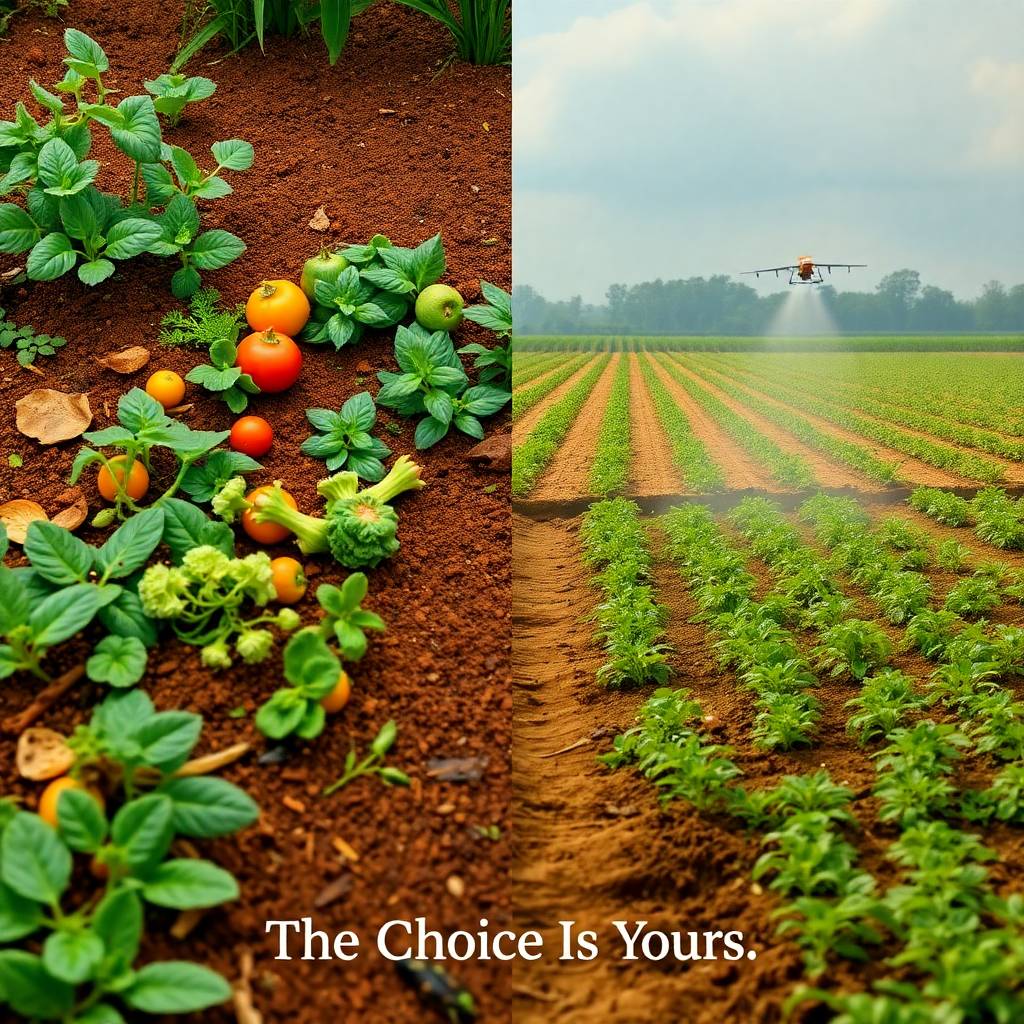The Hidden Cost of Glyphosate: Why This Common Herbicide Should Concern Every Health-Conscious Individual

As someone deeply committed to natural health and environmental wellbeing, I've been intensively researching the impacts of common agricultural practices on our ecosystem and human health. What I've discovered about glyphosate, the world's most widely used herbicide, has me deeply concerned for both our immediate health and our environmental future.
Why I'm Sounding the Alarm
In my work coaching people through health transformations, I've noticed a disturbing pattern: many of the health issues my clients face - from gut problems to hormonal imbalances - can be traced back to environmental toxins. Glyphosate, I've learned, is particularly insidious because it's nearly ubiquitous in our food supply and environment.
The Silent Health Threat in Your Food
Here's what makes glyphosate particularly dangerous: it doesn't just stay on the surface of plants - it becomes systemic. This means when you're eating non-organic foods, you're potentially consuming this chemical with every bite. Even more concerning, glyphosate has been found to:
- Disrupt gut bacteria, potentially contributing to digestive issues and autoimmune conditions
- Interfere with essential mineral absorption, leading to deficiencies
- Contribute to oxidative stress in the body, accelerating aging and inflammation
- Potentially affect hormonal balance and reproductive health
Beyond Human Health: The Environmental Cascade
The environmental impact is equally alarming. I've learned that glyphosate:
- Reduces soil biodiversity by 21% in frequently treated areas
- Causes severe damage to aquatic ecosystems, affecting fish, amphibians, and other water life
- Disrupts natural animal behaviors, including feeding and reproduction
- Persists in the environment much longer than previously thought
Practical Steps to Protect Yourself and Your Family
1. Food Choices
- Switch to certified organic produce, especially for the "dirty dozen"
- Start a small organic garden (I've found that even a few pots on a windowsill can provide fresh, clean herbs)
- Support local farmers who use organic or regenerative practices
- Wash all produce thoroughly with specialized produce wash or baking soda solution
2. Testing and Monitoring
- Consider testing your urine for glyphosate levels (several labs now offer this)
- If you have a garden, get your soil tested before planting
- Test your water supply, especially if you're on well water
- Consider hair mineral analysis to check for mineral imbalances that might be related to glyphosate exposure
3. Detoxification Strategies
As someone who's experienced the transformative power of juice fasting, I can't emphasize enough the importance of regular detoxification. Here's what I recommend:
- Regular juice fasting (start with 3-day fasts and work up as comfortable)
- Daily consumption of detox-supporting foods like:
- Chlorella and spirulina
- Cilantro
- Cruciferous vegetables
- Fresh herbs like parsley and mint
- Regular infrared sauna sessions
- Activated charcoal supplementation when eating questionable foods
4. Prevention Strategies
- Create a "clean" zone in your neighborhood by encouraging neighbors to avoid glyphosate use
- Use natural weed control methods in your yard:
- Mulching
- Hand-pulling
- Vinegar-based solutions
- Proper plant spacing
The Path Forward
I believe we're at a crucial turning point in understanding how environmental toxins affect our health. While the presence of glyphosate in our environment is concerning, I'm encouraged by the growing awareness and the increasing availability of organic options.
Take Action Today
Start with one small change. Perhaps it's switching to organic for the foods you eat most often, or beginning a modest detox protocol. Remember, every step away from glyphosate exposure is a step toward better health.
Would you like to learn more about detoxing from glyphosate and other environmental toxins? I offer personalized coaching programs that can help you navigate this journey. Let me know in the comments what questions you have about glyphosate and detoxification.
A Final Thought
Your body has an amazing capacity to heal when given the right conditions. By reducing your exposure to glyphosate and supporting your natural detoxification pathways, you're giving your body the chance to thrive as nature intended.
What steps will you take today to reduce your glyphosate exposure? Share your thoughts and plans in the comments below.
[Note: This article is based on current scientific research and personal experience in health coaching. For specific studies and citations, please see the references below.]